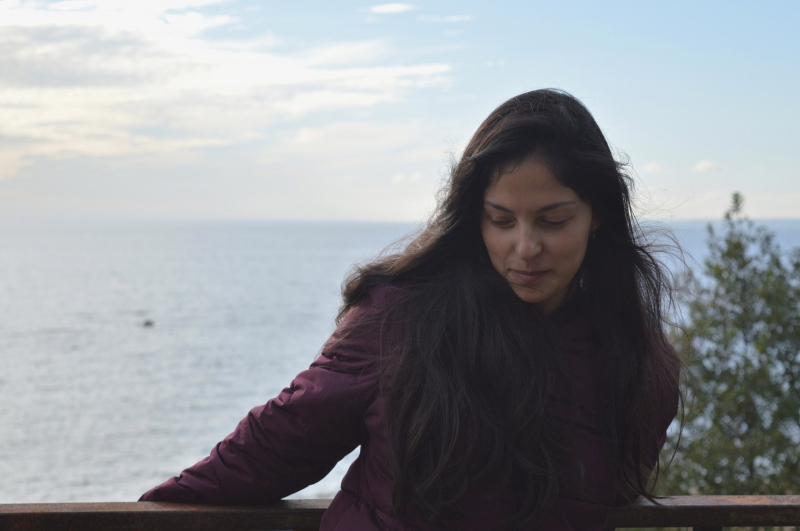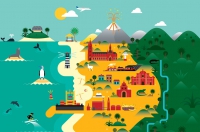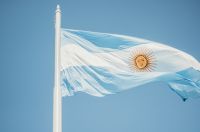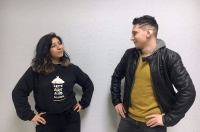How did you decide to come to Russia?
Firstly, I wanted to learn Russian, and coming here was a perfect opportunity to do that, especially for Latin Americans like me. There aren’t many Russians in our part of the world. Secondly, my area of study is applied computer science, and Russians have a reputation as talented computer scientists.
What do you find so interesting about the Russian language?
It wasn’t a spontaneous decision; I’ve wanted this since childhood. When I was in school and we were looking at the map during geography class, I looked at Russia and said: “What a huge country, and so far away! I’ll never get there, and I’ll never speak their language.” In Latin America, our image of Russia is very stereotypical because nobody really knows what it’s like as a country. I found the language fascinating: it’s not Chinese, not Japanese, and not English. It’s just made up of circles and squares (laughs) and sounds so mighty and majestic. I really wanted to start speaking it!
Which stereotypes about Russia do Ecuadorians have?
There are plenty of them. As I’ve said, our image of Russia is very stereotypical. When I told my grandparents I was going to Russia, they jumped up: “Oh, no! It’s all communists, vodka, and mafia there.” Bears walk the streets and it’s cold everywhere.
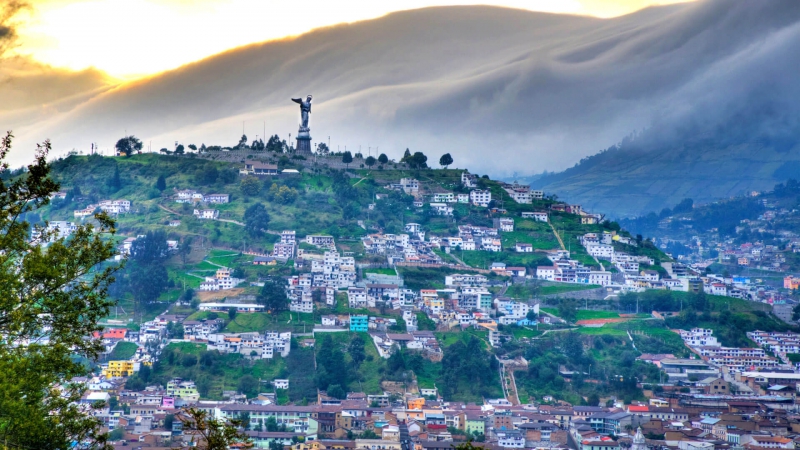
Do your Russian friends help you understand Russian culture?
They take me to places, give me new food, teach me slang like “расслабляй булочки” – “calm your buns”. It’s funny! They always say that to me when I get anxious. So yes, I am very immersed in Russian culture right now and I rent an apartment with a Russian roommate. We’re very different: she’s a piano player, I’m a programmer. She taught me to make “herring under a fur coat”, olivier, and mimosa salads for New Year’s, and borsch. I could host a workshop on Russian food now, though I’m still struggling with blini. And Russian people are really cool! They can debate any topic: philosophy, religion, or politics. They get together and stay up talking until two or three in the morning, and they don’t need alcohol or anything to do that. Just Russian culture (laughs). And Russians are the only ones who can do this. Say we’re sitting in a cafe eating burgers and someone brings up Christianity. The philosophers and the programmers clash. As programmers, we attack with logic. But it all ends well and we even come to some kind of shared consensus. That kind of thing is possible only in Russia. If this were in Ecuador, tables would get flipped! Here, everyone simply goes back to eating their burgers.
What are the things you like and don’t like about Russia?
The thing I love most is your culture of friendship. You are honest and truthful to friends, without pretense, as you are. And also borsch. I really love Dostoevsky, it’s my passion, and I’ve also read about the Second World War, what happened in Leningrad, and Victory Day.
What I don’t like is the cold. I still haven’t gotten used to it. I keep coming down with the flu.
Why ITMO?
ITMO was the only university that presented information in a clear and accessible way. That’s why it was first on my list. I visited the website and found everything I needed there. Then I read about all kinds of events and life in the dorms. I learned about my program and the subjects I would study there. All that helps you feel at home, like you know where you’re going and what awaits you there. I was also impressed with the level of assistance I got from ITMO. It was the only time I wrote to a university and received a detailed reply in English. All that support gave me trust in the University.
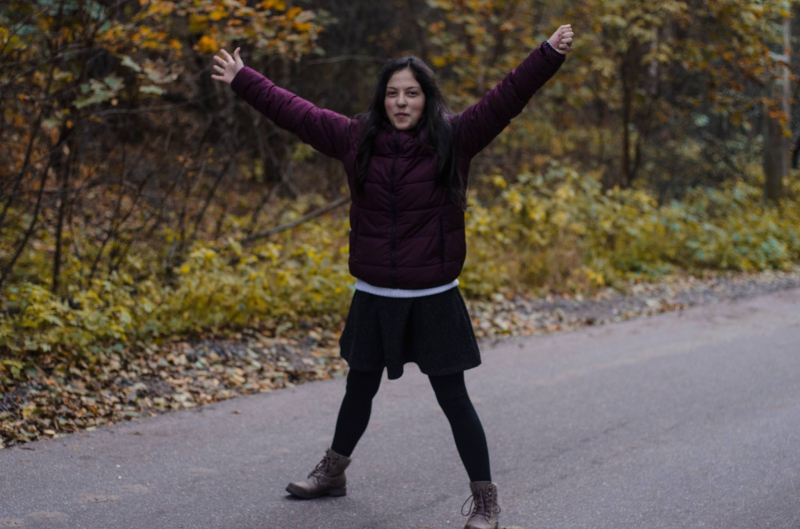
Which subjects do you enjoy or dislike?
In my first and second year I really enjoyed physics. I couldn’t always understand my professor’s Russian, but textbooks helped me out. I gained a wider perspective. These days I really like the classes on artificial intelligence and information networks, and I’m not a fan of classes where the teachers keep on monologuing.
Is the educational system in Ecuador different from Russia's?
Yes, definitely. Teachers in Ecuador only care about your answer. It doesn’t matter how you came to it, but it must be correct. In Russia it’s the other way around. They ask you a question and observe your thought process and where you made a mistake. The answer is still important, of course, but how you think is even more so. And if you get something wrong, they bring you back to that point of error. So, yes, it is different, but in a good way.
Would you consider staying in Russia to get your PhD?
I would. I’ve already made myself familiar with the Russian educational system, and I like it here. St. Petersburg gives me the opportunity to study not only physics, math, and computer science – everything exact and square-shaped – but also to meet people from the art community or go to museums and theatres.
What advice would you give to students from Latin America who'd like to study in Russia, but still can’t take the leap?
You’re only on the fence because you’re scared. Russia's doors are open – so come in! Yes, sometimes you get so homesick that you can’t get out of your bed, but the time spent here is so wonderful! It’s something you’ll remember for the rest of your life. Being in your own country, your own culture, among people you know is simple. But it’s like being a sheep in the herd – what’s the point?
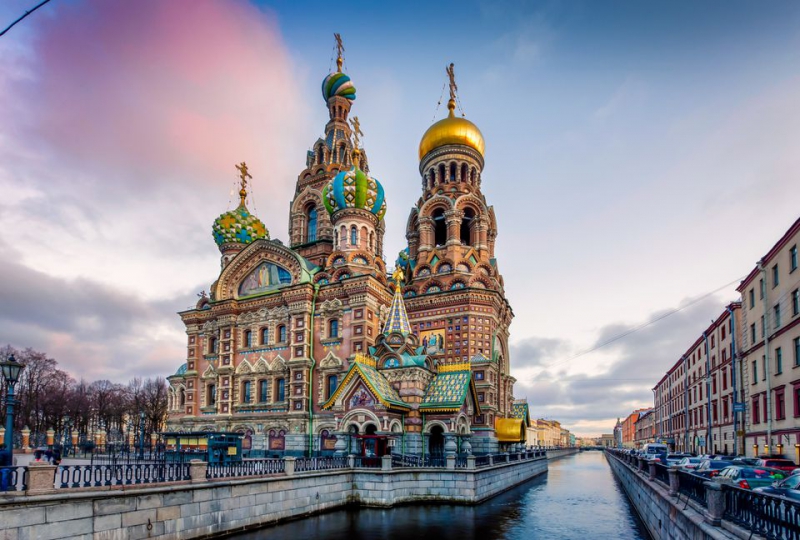
And for the ones who already took the leap?
Don’t forget to bring a scarf!
Don’t eat KFC. Go to the cafeteria and try Russian food, even if it looks weird.
Don’t be afraid of being alone. Discovering St. Petersburg on your own can be wonderful. Don’t wait for a fellow countryperson to knock on your door and take you somewhere. Go out on your own! It doesn’t matter if you know the language. Visit the Hermitage, because no matter how many times you’ve been there, you’ll find something new every time. Visit St. Isaac’s Cathedral, climb the dome, and take some selfies. Visit the 300th Anniversary of St. Petersburg Park. Do whatever! Don’t be afraid of being alone. And don’t be afraid of exploring Russian culture.
Russians say it how it is straight to your face; don’t take that too personally.
And, women: visit every beauty store. Even if you don’t use makeup, try every perfume sample you can!
What three words do you associate with Russia?
Interesting.
Different – there are people in St. Petersburg who I call hippies: they’re very European, open and broad-minded. I went to Samara this year – the people there are different, they invite you into their homes and speak to you like you’ve been friends for years. Great vistas, too. St. Petersburg is a city of the Tzars, Moscow is a metropolis, square and mathematical; in the south, you’ll see wooden houses of every color and ancient churches. Russia is diverse, especially compared to other countries. It’s another planet. If the apocalypse comes, Russians will survive: they have all kinds of things from North to South. They even have their own Santa Claus – Father Frost and the Snow Maiden.
Incredible – in every sense of the word. I’ve met incredible people here, saw incredible things, and tried incredible foods.
Interviewed by Daria Kushnereva
